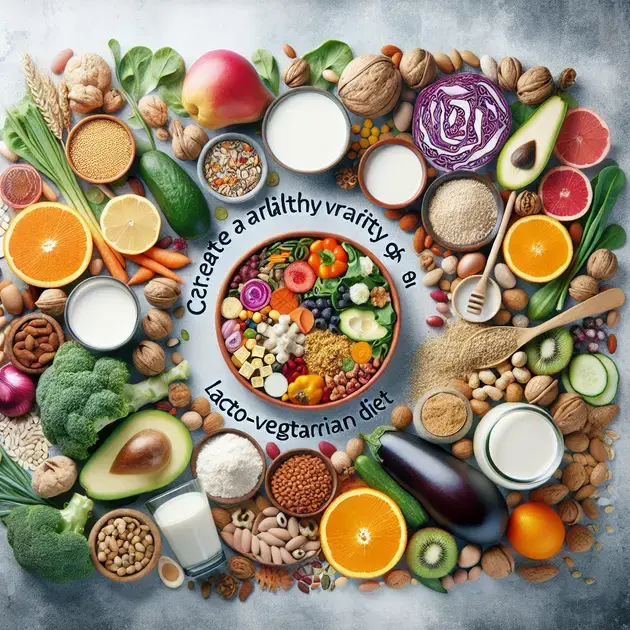Vegetarianism has seen a surge in popularity in recent years, attracting people for various reasons, including health benefits and animal welfare concerns. Contrary to popular belief, a vegetarian diet is much more diverse than just eating vegetables. One such variation is the lacto-vegetarian diet, which includes dairy products in addition to plant-based foods.
A lacto-vegetarian diet primarily consists of fruits, vegetables, grains, legumes, nuts, and seeds. In addition to these, it allows for the consumption of dairy products such as milk, cheese, yogurt, and butter. This variation of a vegetarian diet is particularly appealing to those who are reluctant to give up dairy products, as it offers an opportunity to enjoy their favorite dairy-based foods while still adhering to a vegetarian lifestyle.
The inclusion of dairy products in the lacto-vegetarian diet provides several essential nutrients that are often associated with animal products. Calcium, for instance, is known for its importance in maintaining strong bones and teeth. Dairy products are a rich source of calcium, making them a valuable addition to a lacto-vegetarian’s diet. Additionally, dairy products contain protein, vitamin D, vitamin B12, and other nutrients necessary for overall health and well-being.
Incorporating a lacto-vegetarian diet can offer numerous health benefits. Research has shown that vegetarians, including lacto-vegetarians, tend to have a lower risk of obesity, heart disease, high blood pressure, and diabetes. Plant-based diets are typically lower in saturated fats and cholesterol, which are commonly found in animal products and have been linked to an increased risk of various chronic diseases. By reducing their consumption of animal-derived foods, lacto-vegetarians experience these positive health effects.
Furthermore, lacto-vegetarianism can be seen as a compassionate approach towards animal welfare. By excluding meat from their diet and opting for plant-based alternatives, individuals choosing a lacto-vegetarian lifestyle actively contribute to minimizing animal suffering. They also help reduce the environmental impact associated with animal agriculture, as it is a significant contributor to greenhouse gas emissions and deforestation.
In conclusion, the lacto-vegetarian diet provides a flexible and inclusive option for those who wish to adopt a vegetarian lifestyle while still enjoying dairy products. By incorporating a variety of plant-based foods alongside dairy, lacto-vegetarians can ensure they receive essential nutrients while reaping the health benefits associated with a vegetarian diet. Moreover, their choice contributes to reducing animal cruelty and environmental degradation. So whether motivated by health or compassion, embracing a lacto-vegetarian diet can be a beneficial and fulfilling choice.
